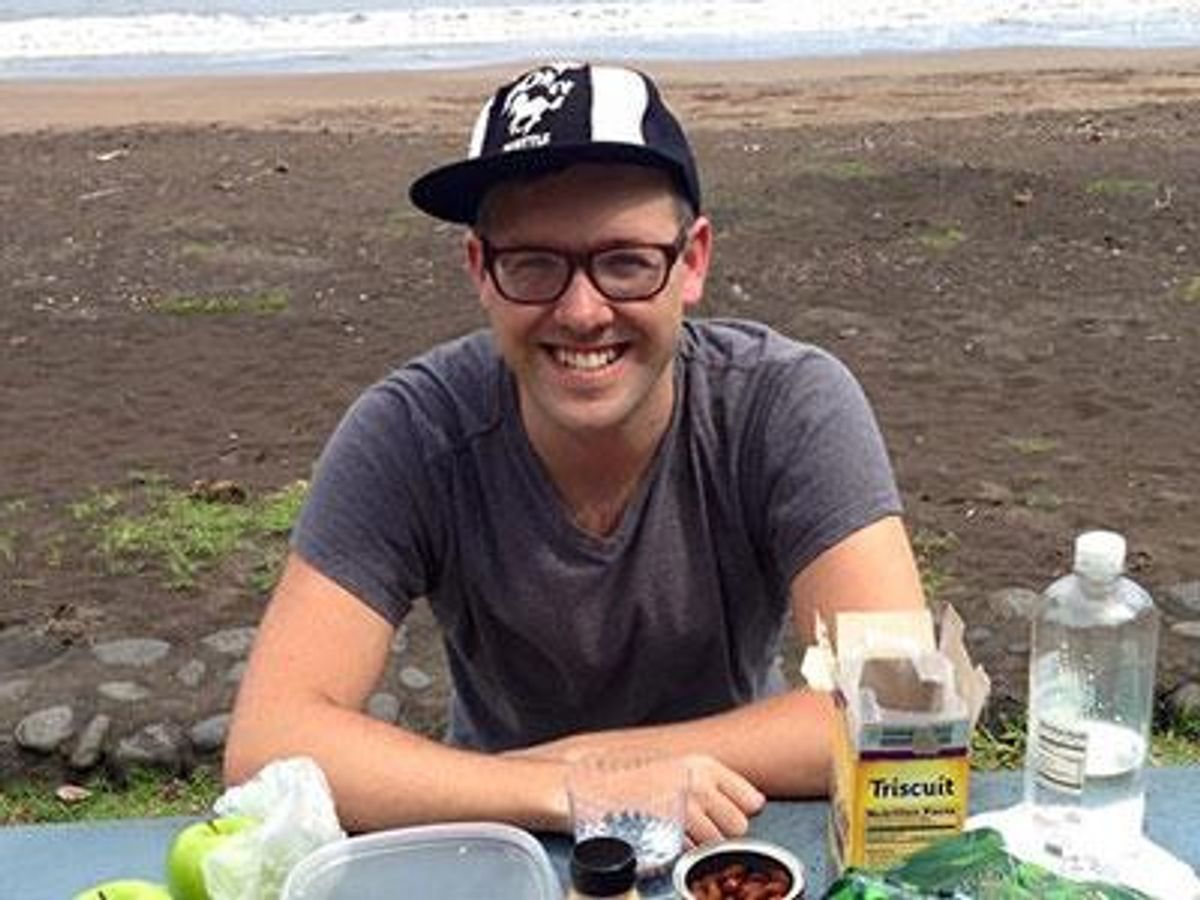Johann's coming-out to his parents was unusual in that it was interrupted by two warthogs, a herd of zebras, and a group of baboons. In hindsight, maybe he shouldn't have tried to come out to them during a vacation to the South African bush.
This was not the coming-out experience that he had come to expect from his limited exposure to gay entertainment: shows like Queer as Folk and movies like The Object of Ny Affection. I interviewed Johann this week for my podcast, The Sewers of Paris, a show about how entertainment has shaped the lives of gay men. (You can listen to his story and subscribe to the podcast here, or at the bottom of this article.)
Johann grew up closeted and lonely under a sexually repressive apartheid regime. He was deeply religious, and searched desperately for people who would accept him. Eventually, that search took to the other side of the world, where he finally found the community he was looking for -- culminating in his discovery of Drag Race, and Seattle drag queen Ben DeLaCreme.
Johann grew up with no access to any gay culture until he discovered E. M. Forster's classic novel Maurice. He recognized something of himself in the story of forbidden same-sex romance. He began easing himself out of the closet, traveling to Johannesburg, then to Europe and America in search of a place where he could be honest and open and out.
There were hookups here and there -- bookish and academic, he had a dazzling fling in Pennsylvania that began when he and another man flirted over favorite Greek philosophers. But it was community he craved, not just rendezvous.
It just didn't seem like being gay had anything to offer him. The life felt lonely, relationships fleeting.
It was maybe appropriate that the animal kingdom tried to disrupt his coming-out. At the time, he felt like the only one of his species, surrounded by strange creatures he didn't understand and who paid no attention to him.
But he finally found what he was looking for one year ago in Seattle's Century Ballroom. Local drag heroine Ben DeLaCreme was a featured contestant on that season of Drag Race, and every week fans would gather over drinks in the ballroom to watch Ben present the episode, offering a live performance of music and jokes and gossip during commercial breaks.
Suddenly, Johann's eyes were opened. Here it was at last -- that community he'd craved ever since he was a kid, trying to pray away the gay in an Evangelical church 10,000 miles away.
At those Drag Race screenings he found a community that gathered under a common cause: to root for their hometown hero. Like a gay Superbowl, they all cheered together, drinks in hand; and they booed together when Ben was eliminated. These were his people, and they were friendly and thoughtful and a little bit weird, just like he was.
It completely changed how he felt about being gay.
"That's how I saw my first gender queer expressions," he recalled. "There was a sense of community, and a sense of decency. You went there with a mission -- other than getting drunk and getting somebody to go home with."
Gradually, week after week, those communal screenings opened him up to what the gay community had to offer. And it opened his heart as well. For the past year, he'd been casually chatting with a fellow online, growing close but never committing to meet. It was time, Johann decided, to go on a date.
And so, one night last summer, the two met up for pizza and nachos, took a walk, and snuck down a dark side-street to make out.
Now they're engaged.
It was a long journey from the closet in South Africa to the marriage altar in Washington. Most of that trip Johann made by himself. But he finished it in the company of his chosen family.
Click here to listen to Johann's story, and to subscribe to the Sewers of Paris.


















































































